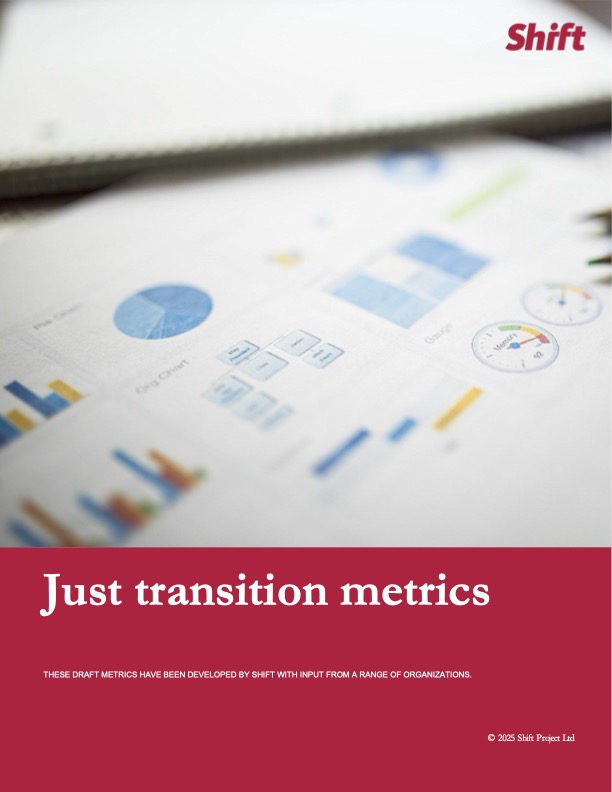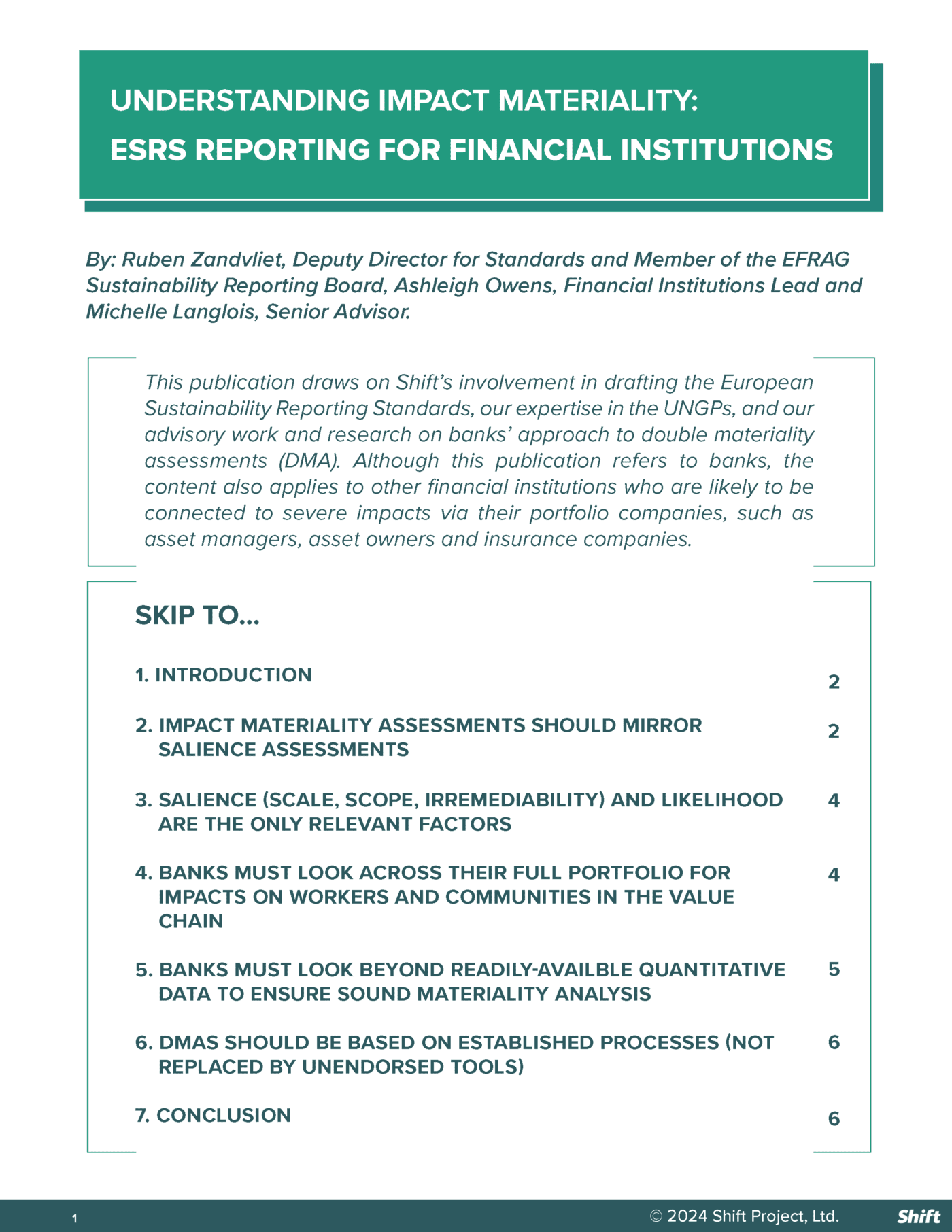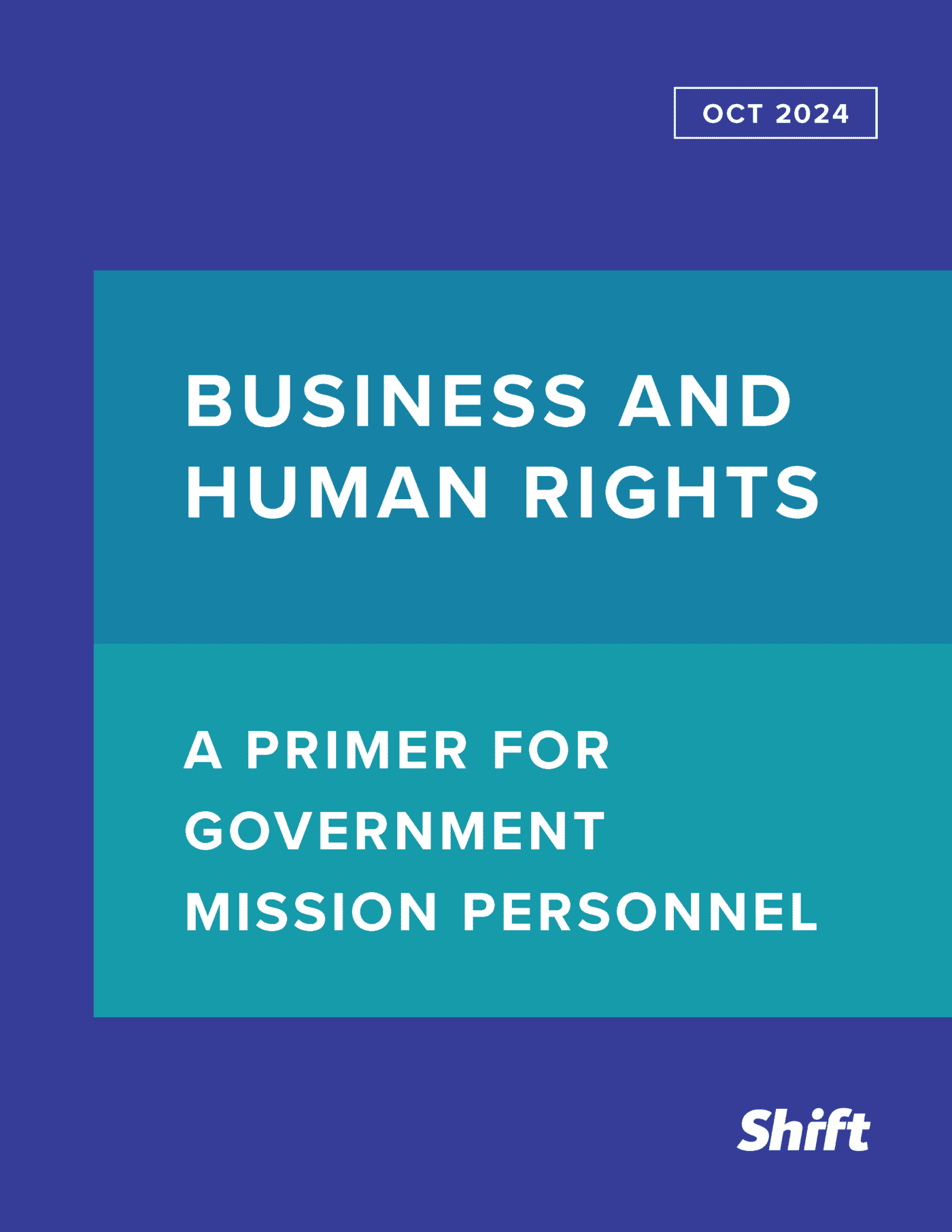For three years, Shift worked with companies, investors and civil society to research and co-create improved ways to evaluate business respect for human rights, which is the core of any company’s social impact. The result is a set of tools and resources divided in two categories: the first focuses on whether companies are wired to respect human rights, including at the level of their business model, governance and cultures; and the second on how to develop indicators capable of measuring the effectiveness and impact of company actions to achieve positive outcomes for people.
All four tools are free. You can download them, use them and adapt them to your needs and context. And please, do CONTACT US to share your experience and feedback.
The Tools
How Companies are Wired
Evaluating Impact

Business Model Red Flags
A list of 24 ways in which a company’s value proposition, value chain, cost structure or revenue model may put people at risk

Tool for Indicator Design
A tool to help practitioners in establishing targets and indicators to measure the effectiveness and impact of company human rights actions and programs
Evaluating Impact

Leadership and Governance Indicators
A menu of 22 indicators focused on whether business leaders are creating a culture of respect for human rights across their organizations
Quality of Relationships Series
A collection of case studies and methodologies about how companies can assess the quality of their relationships with affected workers, communities and consumers
INCUBATED INITIATIVES:
Accounting for a Living Wage
Shift and the Capitals Coalition have joined forces to develop an accounting model that companies can use to measure and report publicly on progress towards living wages across their workforces and supply chains over time. Learn More
Behavioral Science
Shift partnered with the Behavioral Science Group at Warwick Business School to examine how working conditions for couriers could be improved by nudging online consumers towards longer delivery windows. Learn More
The Valuing Respect Project and its outputs were made possible thanks to the generous support that we received from our funders, as well as the close collaboration with regional partners, academic institutions, companies, investors and civil society organizations. Learn more about our journey to better evaluation here.
FUNDERS






